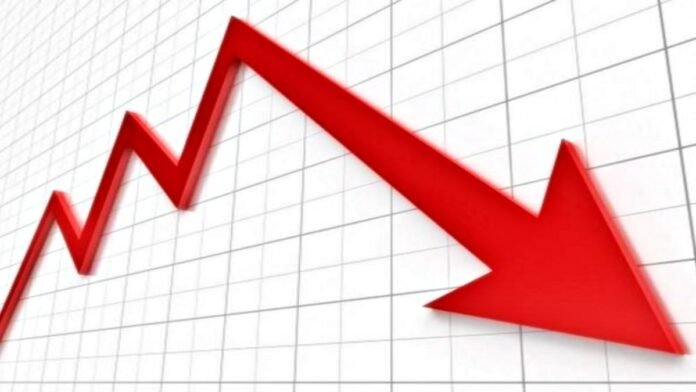
Key Points
- Major selloff: Sensex crashes 1,836 points (2.2%) and Nifty drops 2.1% in three straight losing sessions.
- Tuesday’s opening: Sensex sank 270 points at open, Nifty slipped below the critical 25,000 mark.
- Triggers: Delay in the US-India trade deal and looming US tariff deadline (Aug 1) spark FII outflows and investor anxiety.
- Weak corporate earnings and broad sectoral declines intensify the rout.
- Mid and Smallcaps battered: BSE Midcap down 0.73%, Smallcap loses 1.31% in Monday’s session alone.
- Cautious outlook as experts warn volatility could persist near-term.
New Delhi: The Indian stock market extended its losing streak for a third straight day on Tuesday (July 29, 2025), with both the Sensex and Nifty tumbling sharply amid mounting trade tensions and disappointing earnings. The BSE Sensex plummeted by 270 points at the opening bell, while the Nifty fell under the 25,000 mark, continuing the bearish sentiment from the previous session.
Monday’s carnage:
Markets witnessed heavy selling across all major sectors. The Sensex closed at 80,891.02, tumbling 572 points (0.70%), while the Nifty-50 lost 156 points (0.63%) to end at 24,680.90. Midcap and smallcap indices were not spared, with the BSE Midcap index dropping 0.73% and the Smallcap index plunging 1.31%.
Three days of sharp decline:
In just three sessions, the Sensex has erased a staggering 1,836 points, representing a 2.2% decline. The Nifty 50 has slumped by 2.1%, reflecting broad-based weakness and risk aversion by investors.
Why is the market falling?
Market experts point to the ongoing uncertainty over a crucial US-India trade deal, as US tariff deadlines loom on August 1. The lack of clarity has turned foreign institutional investors (FIIs) into net sellers, accelerating the outflow of foreign capital from Indian equities.
In addition, several frontline companies have reported disappointing quarterly results, intensifying the selloff. “Lackluster earnings, coupled with global trade jitters, have clouded investor sentiment. With key deadlines ahead, more volatility cannot be ruled out,” said market analyst.
Analysts are advising investors to remain cautious in the near term, paying close attention to global cues, the outcome of ongoing trade negotiations, and domestic corporate earnings trends.
The market’s recent performance serves as a reminder of how susceptible Indian equities remain to both global policy moves and local corporate health. As the deadline for the US tariff decision approaches, market watchers anticipate continued volatility and advise restraint until there is greater clarity on the trade front.



















































